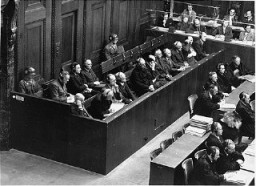
Courtroom Drama: Unveiling Truths in the Trial Arena
In the heart of the legal system, trials unfold as gripping courtroom dramas, where attorneys present evidence, examine witnesses, and engage in a strategic battle to unveil truths. This article delves into the essence of trials, exploring their dynamics, significance, and the artistry involved in seeking justice within the trial arena.
The Theater of Justice: Trials Unveiled
Trials serve as the theater of justice, where legal narratives come to life. Attorneys transform into actors, presenting compelling stories that aim to sway judges and juries. The courtroom becomes a stage, and the trial unfolds as a carefully orchestrated drama, with each party vying to present their version of the truth.
Opening Statements: Setting the Stage
The drama commences with opening statements, where attorneys set the stage for the trial. These statements are the opening lines of the legal script, outlining the case’s narrative, highlighting key points, and providing a glimpse into the evidence that will be presented. Attorneys use this opportunity to captivate the attention of the trier of fact.
Examination and Cross-Examination: Unveiling Facts
A crucial act in the trial drama is the examination of witnesses. Attorneys employ different styles, questioning witnesses to unveil facts that support their case. Cross-examination becomes a high-stakes exchange, where the opposing party aims to challenge the credibility of witnesses and introduce doubt into the narrative. The art of questioning is central to unveiling the truths that will shape the verdict.
Presenting Evidence: Building the Case
The trial drama relies heavily on the presentation of evidence. Documents, photographs, and expert testimony become the props and plot devices, each contributing to the unfolding narrative. Attorneys strategically introduce evidence to strengthen their arguments and establish the foundation for the version of truth they seek to convey.
Legal Arguments: Crafting Persuasion
Legal arguments in trials are the monologues that attorneys deliver to persuade the trier of fact. These arguments weave together the evidence, legal precedents, and the attorney’s interpretation of the law. Crafting persuasive legal arguments is an art, requiring a deep understanding of legal principles and a keen awareness of the dynamics of the trial arena.
The Adversarial Dance: Defense vs. Prosecution
Trials are an adversarial dance, with the defense and prosecution engaged in a strategic and tactical battle. Each party endeavors to outmaneuver the other, anticipating moves, countering arguments, and seeking to control the narrative. The trial arena becomes a legal battleground, where the pursuit of truth is intertwined with the pursuit of victory.
Witness Credibility: A Critical Element
Central to the trial drama is the credibility of witnesses. Jurors assess not only the evidence presented but also the believability and consistency of the witnesses. Attorneys skillfully navigate the delicate task of establishing their witnesses’ credibility while challenging that of the opposing party. Witness credibility becomes a linchpin in the unveiling of truths.
Closing Arguments: The Final Act
The trial drama reaches its climax with closing arguments. Attorneys deliver powerful summations, weaving together the threads of evidence, legal arguments, and witness credibility. Closing arguments are the final act in the courtroom drama, leaving a lasting impression on the trier of fact and framing the narrative that will guide their deliberations.
The Verdict: Resolution in the Trial Arena
The resolution of a trial comes with the pronouncement of the verdict. Jurors, having witnessed the drama unfold, render their decision based on the presented evidence, legal arguments, and their assessment of witness credibility. The verdict is the culmination of the trial, representing the truths as perceived by the trier of fact.
For a deeper understanding of the trial arena and its intricate dynamics, explore Trial. Trials are not just legal proceedings; they are dramatic narratives that play out in pursuit of justice, where the artistry of attorneys and the complexities of the legal system converge in the quest for truth.














